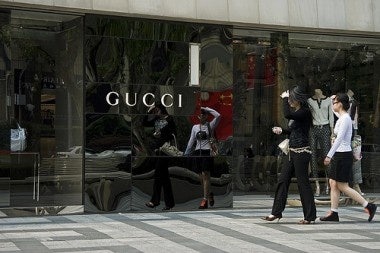Findings Could Increase Pressure On Government To Lower Luxury Taxes#

Luxury prices are outpacing inflation: Will this work out in Hong Kong's favor?
As inflation continues to hit China's laobaixing where it hurts -- the wallet and the grocery check-out line -- the Hurun Report's new Luxury Consumer Price Index (LCPI) finds this week that price increases for the luxury goods so beloved by China's wealthy now outpace the official consumer price index (CPI) by 1.3 percent. According to the report, as of this June, average prices for a basket of 61 luxury goods and services in nine product categories are up 7.7 percent year-on-year, compared to 6.4 percent for the CPI. Still, as the Hurun Report notes, the latest price increase is less than the previous year, during which luxury goods and services showed an 11 percent increase.
As Rupert Hoogewerf, chairman of the Hurun Report, pointed out this week, a significant factor in this year's price increases comes down to the appreciation of the euro and British pound against the Chinese yuan. According to the Hurun Report's LCPI, the euro has strengthened nearly 12 percent against the yuan, while the British pound has appreciated eight percent against the yuan. Considering this relative strengthening of currency, and with demand for "super toys" booming among well-heeled Chinese, prices for European and British yachts, jets and wine have shown some of the greatest increases this year. Among the Hurun Report's nine product categories, average prices for yachts and jets shot up 20 percent over the past year, with cosmetics and accessories showing a nearly 17 percent increase.
While cosmetics have been singled out as one of the first luxury categories that could potentially see luxury taxes cut later this year, as Jing Daily previously noted, the Chinese government has singled out yachts and private jets as prime for tax increases in the next year, as it cracks down on "heavily polluting" luxury segments. Still, that doesn't seem to have dampened interest in jets and yachts among China's moneyed class, for whom the Hurun Report recently launched its specialized "Wings & Water" magazine.
The skyrocketing demand we've seen among wealthy mainland Chinese for high-end wine and spirits, which has proven instrumental to Hong Kong's emergence as the world's top wine auction market, has shown a drop-down effect on this year's LCPI. According to the Hurun Report, luxury alcohol and tobacco prices rose 9.2 percent, with some segments, particularly vintage baijiu, showing some of the greatest increases, with a bottle of 1981 Moutai now going for up to 21,000 yuan (US$3,260), a 61 percent rise over last year. As Jing Daily has noticed over the past year, demand for vintage baijiu has been particularly strong at auction, with certain bottles from the late 1950s selling for hundreds of thousands of dollars. But spirits spending goes far beyond Chinese "white lightning": the country's obsession with all things Bordeaux, particularly all things Lafite, was also reflected in the LCPI, with a half-case of 1982 Chateau Lafite now going for 445,186 yuan ($69,116), 29 percent higher than last year.
So will rising prices dissuade China's wealthy from shopping? Probably not entirely, but overall price increases -- combined with government reluctance to lower the country's high luxury taxes (despite public pressure) and the price increases that major luxury brands enacted earlier this month in mainland China -- could ultimately work out in Hong Kong's favor. Although Beijing is trying to transform south China's Hainan province into a high-end, "duty-free" destination for luxury shoppers, prices for luxury goods remain significantly lower in Hong Kong than in the Mainland. So just as wealthy Chinese, alarmed by food safety scandals, have in many cases put a premium on buying food shipped from abroad, more may put an even greater premium on buying luxury goods outside the Mainland as the price gap yawns.